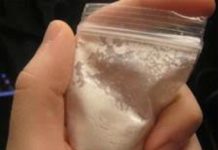the psychiatric problems caused the substance abuse.”
One way to combat the issue is to dispel in patient’s minds the “fallacy of self-medication,” as Lembke puts it.
“Once an addiction is in full swing it’s got its own life cycle,” Dr. Lembke said. “One of the big holes in the ‘self-medication’ hypothesis is that even if we are able to effectively treat the non-addiction psychiatric disorder, typically we don’t see substance abuse approve, unless we also treat the substance abuse disorder.
“There is a ton of data on this; people who have psychiatric disorders of any sort who are using drugs or alcohol in a maladaptive way have worse outcomes for their psychiatric disorder,” Lembke said. “They have more hospitalizations, more episodes and generally do poorer from a mental health perspective.”
This is all of course not to say that patients cannot suffer from both substance abuse and a separate mental illness simultaneously, or that people do not have reasons for using drugs or alcohol. But that if a dual diagnosis is suspected, it is imperative that a patient not only receives treatment for the disorder but also the substance abuse.















